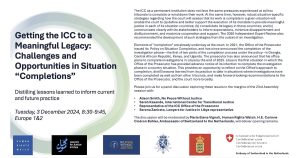The grave human rights violations facing the people of Iran, particularly women and girls, are just the latest instalment of mass protests and reactive unjustified government repression which have characterised at least the last decade of Iranian history. Following the death in mid-September of Mahsa Amini, a 22-year-old Kurdish woman who died in police custody after being arrested for “inappropriate attire”, protests intensified both within Iran and among the Iranian diaspora, representing the most significant challenge to the regime in years. Iranian women and girls took to the streets to demand women’s rights and independence as well as more open and democratic institutions and they were met with brutal violence, unlawful incarcerations and killings. Indeed, the Iranian regime seems to be unfortunately more interested in providing military support to Russia for their invasion of Ukraine than economic, social, and cultural rights to its people, brutally repressing mass protests with tens of thousands of people being arrested, hundreds killed, several facing prison sentences of five to ten years for national-security-related charges, and five already sentenced to death in relation to the protests.
NPWJ condemns the use of the death penalty, torture, and violent repression by police forces and Basij militia in Iran and commends the bravery of women and children in Iran continuing to fight for their freedoms.
The current protests are unique from those that preceded them due to the immense involvement of a multitude of different groups with men, youth, ethnic minorities, and the Iranian diaspora elsewhere also taking to the streets, not only to demonstrate their support, but also to unite under the shared goals of equality, democracy, peace, and independence. It is, for this reason, that to Iranians, this movement feels different to those of the past with demonstrators fundamentally rejecting the full political system established in 1979, rather than solely a section of the political establishment, and the shared sense that enough is enough. Social media has been a powerful tool for Iranians in the dissemination of this message with the phrase “woman, life, freedom” popularised, information on demonstrations being circulated, and people worldwide becoming engaged in the movement. In a similar way, the 2009 protests were described as the “Twitter Revolution” because the platform was so significant in the organisation of demonstrations. As a result, the internet is one of the first things that the Iranian regime has stripped its citizens of access to, violating their right to access to information and freedom of expression.
The present situation is the product of a culmination of years of struggle for freedom and equality being violently repressed and ultimately crushed by the ayatollahs in Tehran and fundamentally due to decades of inactivity, apathy, and negligence by international actors. There is an unfortunate pattern, whereby international actors pay attention to Iranian movements for a short period and then quickly lose interest, having provided no significant support for local activists and people in their plight. With the urgency and severity of the situation in Iran presently and the echoes of the 2019 protests, to which international responses were insufficient, this inaction and apathy must no longer be condoned.
The international community has been offered the opportunity to support Iranian human rights defenders and democracy advocates at the UN Human Rights Council’s 35th Special Session on Iran on 24 November 2022 to address the deteriorating human rights situation in the Islamic Republic of Iran, especially with respect to women and girls. The draft resolution tabled by Germany, Iceland and 16 other countries propose the establishment of an independent, international fact-finding mission tasked to investigate, collect and preserve evidence of crimes; although this is a positive reaction to the daily massive violations in the streets of Iran, the timeline envisaged in the draft resolution is far too long, with preliminary results of this investigation foreseen no earlier than the beginning of 2024, thus posing a great risk of being another lost opportunity for the international community to act in defence of human rights in Iran.
Due to the urgency of the situation, international actors cannot be idle for any longer whilst further violence and human rights abuses are escalating. NPWJ therefore urges international organisations and governments to act now by contributing to the mitigation of risks and building strong partnerships which can enact lasting change and the overall advancement and promotion of human rights, and particularly women’s rights, in Iran.
NPWJ stands with Iranian women in their demand to enjoy their full autonomy and in seeking justice, reparation and accountability for the violations committed against their basic human rights and encourages action on the removal of internet access through the provision of tools which enable the people of Iran to enjoy their right to information, communication and free speech despite the efforts by Tehran to quell and silence the dissenting voices of its own people. It is now the time for the international community to finally actively engage with Iranian civil society and build solid and long-lasting connections. The complete isolation of Iranian civil society poses a considerably significant risk, which is why it is now critical that the international community begin to immediately develop a thoroughly planned support and assistance mechanism which can strengthen the Iranian civil society’s resolve to achieve a more open, equal and democratic society.




